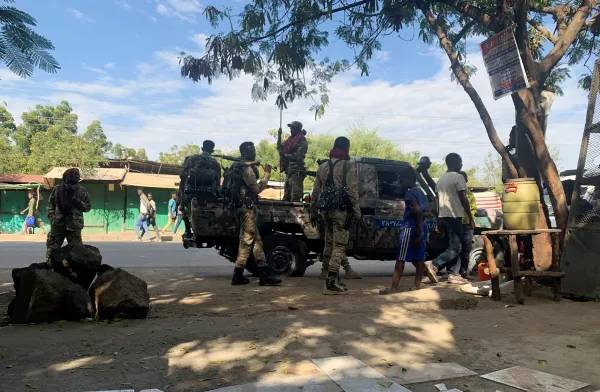NAIROBI, Kenya (KAAB TV) – Amnesty International has condemned the ongoing mass arbitrary detentions in Ethiopia’s Amhara region, where hundreds of civilians, including academics, have been arrested in major towns since September 28, 2024.
The human rights group highlighted the widespread violations of legal procedures by the Ethiopian authorities.
“The Ethiopian army and police’s ongoing campaign of arbitrary mass detentions in the Amhara region is yet more evidence of the government’s total disregard for the rule of law,” said Tigere Chagutah, Amnesty International’s Regional Director for East and Southern Africa.
Eyewitnesses reported that authorities arrived with “lists” of individuals and conducted arrests without obtaining proper search or arrest warrants, as required by Ethiopian law.
Those detained have often not been brought before a court within the constitutionally mandated 48 hours, raising concerns about due process violations.
“Ethiopian authorities must immediately end these arbitrary arrests, press charges against those detained for internationally recognized crimes and follow due process, or release them without further delay. It is time for the authorities to stop using arbitrary detention as a tool of repression,” Chagutah added.
Amnesty International has documented increasing harassment, intimidation, and attacks on journalists and human rights defenders by Ethiopian authorities in recent months, leading to a wave of exiles.
This has severely curtailed reporting on human rights violations, especially in conflict-affected regions like Amhara.
The latest wave of arbitrary detentions includes academics and civil servants, particularly from federal universities in the region, further threatening freedom of expression.
Amnesty reports that some of these arrests were carried out in nighttime raids, with military involvement, exacerbating fears of a broader crackdown on dissent.
These arrests represent a significant escalation of repression in Ethiopia, which continues to undermine the rule of law and fundamental human rights.


